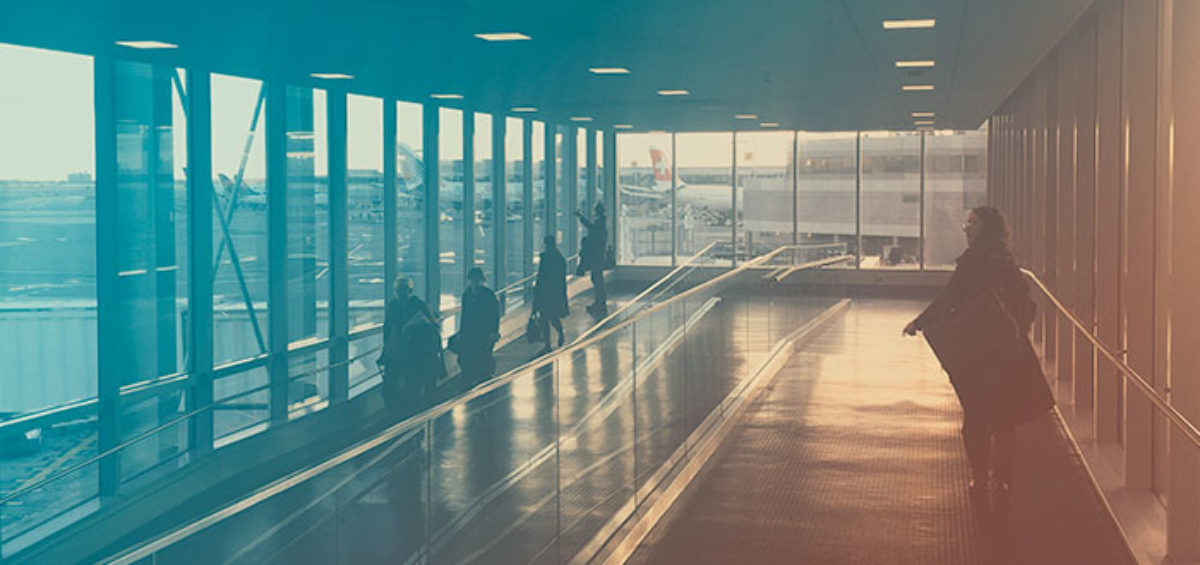Drama for travelers with new FAA rules
Now that the first hurdle has been crossed for the Federal Aviation Administration (FAA ) reauthorization bill, air travelers are wondering: How does this help us?
Unfortunately for air travelers the current legislation under review to fund the FAA not much will improve. This bill, which was widely thought to be the best chance to upgrade the state of air travel, was recently approved by the House Transportation and Infrastructure Committee and now waits to go before the Senate. The Senate is unlikely to pass the bill in its current form because of the highly controversial portion focusing on privatized air traffic control.
Despite including some provisions that would benefit air travelers such as requirements to refund fees for delayed baggage and extensions to the Transportation Departments’ respected Advisory Committee for Aviation Consumer Protection, the FAA bill holds little added value for the average traveler.
Creating a false sense of pricing
The FAA bill includes provisions that would benefit the airlines, like the amendment from Congressman Carlos Curbelo (R, FL) that brings the anti-consumer Transparent Airfares Act proposal back to life. This amendment allows airlines to omit taxes and fees from their advertised pricing and first-screen fare postings.
This lack of fare disclosure, supported by the amendment that was introduced late during the bill’s markup session, reverses the Transportations Department’s popular full-fare advertising rule, which requires airlines to quote the entire fare but permits them to break down the taxes and fees less prominently. These changes to advertising rules significantly affects air travelers since cost of ticket appear to be at least 20 percent lower than they actually are, creating a false sense of pricing within the air travel market.
Two years ago airlines lobbied the house to pass a similar measure, but the legislation failed to gain traction in the Senate. Air travelers hope that the amendment’s fate is likely to be the same and already one key Senator, Robert Menendez (D-N.J.), has vowed to not let the act pass in its current state, saying it is almost akin to cheating customers, misleading them into thinking the price of flying is lower.
Trimming off the inches
The second issue is seat size and pitch – an amendment called the Seat Egress in Air Travel (SEAT) Act, which was proposed by Rep. Steve Cohen (D-Tenn.). This amendment would have ensured minimum standards but failed in committee. Prior to the deregulations of airlines in the 1970, the average distance between rows has dropped from 35 to about 31 inches today; additionally the average width of the seat has shrunk from 18 to 16 ½ inches.
Travelers are caught in Washington drama
Customer advocacy groups like FlyersRights.org (a group that represents air travelers) are pushing the FAA to set a moratorium on further shrinkage until standards have been set. Not surprisingly, the airline industry vehemently opposes regulations as stated by Jean Media, a spokeswoman for Airlines for America, “We believe the government should not regulate, but instead market forces, which reflect a consumer decisions and competition, should determine what is offered.”
Senator Cohen is not dissuaded by the amendment being struck down in committee, he plans to reintroduce the amendment again when the bill comes to floor. Observers claim that it is very likely that the companion bill will contain the language that Cohen is looking for, setting minimum seat standards. The main purpose of this bill would be to ensure the health and safety of airline passengers allowing both for passengers to be able to exit in a timely and safe manner from a survivable crash and to avoid the increased risk of deep vein thrombosis which results from being forced to sit in undersized seats for extended periods of time.
It is important to remember that these two amendments are just small pieces tied to the larger 273 pages of the FAA bill, the bulk of which appears to be an attempt to privatize air traffic control. Observers on the hill expect Congress to delay the bill, which means the effort to roll back disclosure law or set minimum seat standard could be held hostage to other Washington drama.
Air travelers are left asking why spend so much time arguing over privatizing air traffic control while their own needs are marginalized and what has congress done to ensure the needs of their own constituents? One example that keeps being brought up is over 17 years ago a highly public and unreasonable tarmac delay pushed for congressional action to create regulations, but the airlines averted this by voluntarily adopting customer-service plans. A decade ago, after another series of egregious tarmac delays, the current regulations were instituted. On this particular bill, and the two amendments attached, voters need to let their representatives know how they feel on this act. The SEAT act failed by a mere 7 votes, and to consumer advocacy groups that means there’s hope that this act, if reintroduced, can pass the House, creating a safer and more comfortable journey for all air travelers.














Very relevant story – thank you for posting! Everyone involved in some way or another in travel
should be aware of.